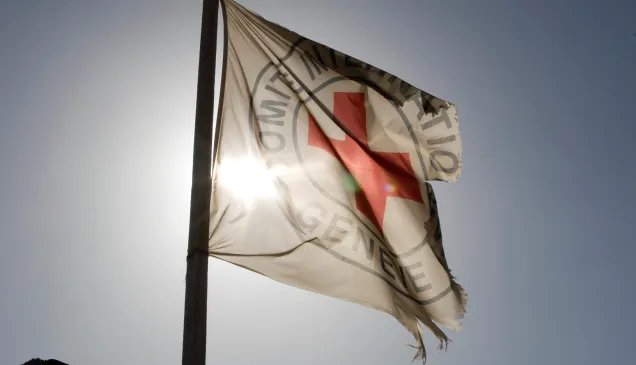Beirut (ICRC) – Repairs and upgrades to the infrastructure at Halba prison, in northern Lebanon, have just been completed thanks to the joint efforts of the International Committee of the Red Cross (ICRC) and the Lebanese Internal Security forces (ISF).
This is the first of seven projects targeting district detention facilities throughout the country. "Detention facilities nationwide are getting old and run-down, which makes conditions very difficult for both detainees and those in charge," said Fabrizzio Carboni, ICRC head of delegation in Lebanon. "The problem is further compounded by overcrowding. The Lebanese authorities have been extremely cooperative so far and together we can make a real impact. But we need more political will to help improve the overall detention situation in the country."
The ICRC regularly visits 23 ISF places of detention in Lebanon, which were originally designed to accommodate 3,500 inmates. But these facilities currently house 6,500 detainees, according to the Ministry of Justice. The current overcrowding is a direct result of the slow judicial process in Lebanon, where 60% of the prison population has not yet stood trial.
"Overcrowding is affecting the detainees in several ways," explained Isabelle Marie, who is in charge of detainee-welfare activities for the ICRC. "It limits the basic services available to them and hampers their access to fresh air and sunlight, which is crucial to staying healthy. Overcrowding also stretches the authorities' capacity to respond to detainees' needs. Improving the judicial process is key to resolving this issue."
In Halba prison, the ICRC carried out a complete renovation of the detainees' quarters and the administrative areas.
Last year, the ICRC visited and assisted more than 3,500 people in detention across Lebanon. In addition to providing medical supplies and other essentials, such as drinking water, hygiene kits and mattresses, the ICRC holds confidential talks with the detention authorities to raise concerns, remind them of their responsibilities and advise them.
For further information, please contact:
Tarek Wheibi, ICRC Beirut, tel: +961 70 153 928
Soaade Messoudi, ICRC Beirut, tel: +961 71 802876



